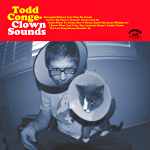I respect your point, but I really gotta disagree with you on this one... the 1st party content appeals to a certain type of gamer (mostly, the kind that was perfectly happy with the Wii, as well), but not to the audience of gamers currently on other systems, or about ready to go to other systems - both those that have left the Wii because they felt it ignored them, and those that never took Nintendo seriously in the first place.
The real problem is this. With the much lower install base of a newly launched system, and the recent memory of abysmally low sales for 3rd party games on the Wii, developers will, naturally, be hesitant to make anything truly original for the WiiU. 3rd parties need either big sales numbers or big Nintendo support to justify design risks. If all that the WiiU gets from 3rd parties is bland ports of games available on other systems, the WiiU may be looking at a repeat of the Wii situation, where 3rd party support evaporates and Nintendo is left with the only content on the system. Cross-platform games are okay... but they don't help the system itself succeed if there's no wide install base to buy them.
This is what Nintendo needs the 3rd party exclusives for. 3rd party exclusives draw wider ranges of new people to a system - get them in the door - and that allows all cross-platform games to sell well. If you can make a Sony fanboy break down and buy a WiiU for those two or three cool exclusives (like I bought an Xbox for Mass Effect and Gears of War), then you've got them for the cross-platforms, too. If you don't have them, then the cross-platforms don't sell at all.
The people who are all OMG'ing for a new Animal Crossing are NOT the same ones obsessing over the latest COD zombie mode DLC. The difference makes a big difference in a systems financial viability...
This man speaks the truth.
Nintendo needs 3rd party exclusives to get a healthy install base of non-Nintendo gamers on the system.
Then 3rd parties will NOT be able to ignore the console.
































